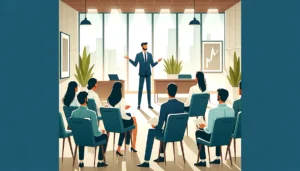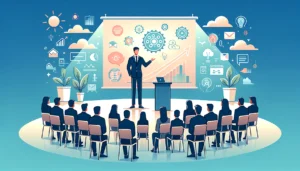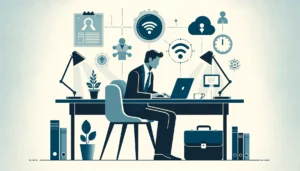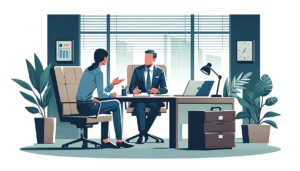Gabrielle Botelho on why the collaboration process matters
- 6 Min Read
HR influencer Gabrielle Botelho outlines why it’s vital for team members to work together to drive organisational success
- Author: Gabrielle Botelho
- Date published: Jun 30, 2021
- Categories

How to increase collaboration between professionals has always been a challenge for corporations, even more now that remote working is a common practice. To get around this difficulty, many organisations began to establish collaboration as an organisational value, as a way to strengthen and encourage this behaviour. Though this is not sustainable and many times, not enough.
Nonetheless, why is it so difficult for us, human beings, to work more collaboratively? According to the theory of evolution, individuals undergo modifications necessary for their survival to adapt to the environment in which they live. In this sense, the human evolution is mainly a result of our genetic, cultural heritage, and competition.
With the evolution of our species, groups were formed, establishing more complex cultures. Thus, increasingly larger groups demanded minds that were better able to deal with cultural variants and social norms. Then at this point, we started to notice human beings more willing to help, cooperate and share in difficult situations.
However, cooperation is not collaboration. Cooperation is when people support each other, to conclude a task in due time. To collaborate, people need to be available and willing to meet, share information and work together to create something. For example, to collaborate efficiently, you need to make tough decisions, talk about what to do and what not to do, negotiate and be flexible.
Therefore, when we talk about collaboration, this is a continuous and evolving process, that involves the organisation and its employees. It requires from the organisation an environment that fosters mutual growth in the team rather than individual competition, for example, and it requires individuals’ social skills that could help along the collaboration process.
The organisation as a facilitator
The model I propose highlights the role of organisations as a facilitator in this collaboration process. In this model, I mention four main elements: safety, clarity, meaning, and trust.
The first element called safety refers to psychological safety, a concept developed by Amy C. Edmondson professor at Harvard Business School. Psychological safety occurs when employees are not afraid that their attitudes, beliefs, or orientations could harm their professional image or their careers. This is the key element for a more inclusive organisational culture, and it is where the collaboration process starts.
However, even with psychological safety, you need to be clear about the organisation’s culture and processes. Does my company have a culture that is open to dialogue or is it a highly hierarchical company? Do I know my organisation’s processes, values, and coexistence rules? These are important questions since, without clarity, the feeling is a lack of visibility about what and how the work can be done. And this lack of clarity can lead to misalignment of expectations on both the employee and employer sides.
When I talk about meaning, it’s about the “why”. Professionals must understand their role in the organisation and their contribution to the business. Likewise, it is necessary to understand the meaning of your contribution in a process of collaboration between teams or areas, for example. Thus, we generate engagement and greater interest in collaborating.
Trust is established as a result of a safe work environment, where I am clear about the organisation’s culture and processes, and in which I understand the importance of the task I have been assigned, managing to understand the meaning of my work. In this scenario, the collaboration process happens naturally and, in this way, promotes important results not only for the organisation but also for the individual.
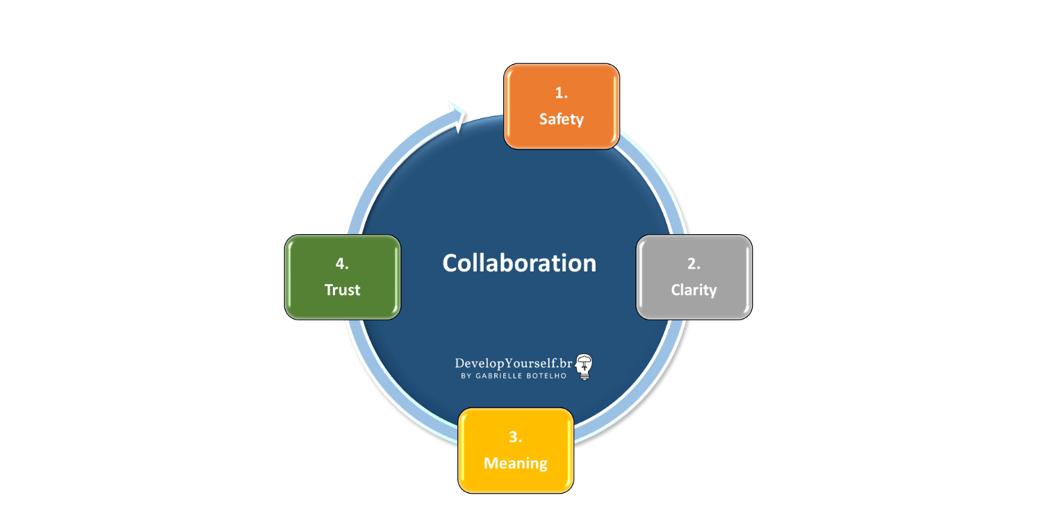
The individual as a key contributor
Studies show that when professionals can collaborate, in addition to their area of expertise or activity, the organisation can achieve better results, inspire loyalty to customers, attract and retain the best talents, and have more creative processes and innovative ideas. But how can we become more collaborative?
Certainly, during your performance review process, you have heard of the smart method. When we think of performance goals, they need to be “smart”: simple, measurable, achievable, relevant, and timebound. How many times have you heard this method? Well, countless, and this concept was engraved in your mind, isn’t it?
Therefore, I would like to propose the same acronym, “smart”, so that you can remember and understand your role in a collaboration process. Each letter of the word “smart”, will explain one soft skill you should develop or reinforce to collaborate effectively:

To collaborate efficiently with your team or with other areas in the organisation, the first thing is to analyse how you communicate. Have you been strategic in the way you communicate, or it is not bringing the results you were expecting? Our communication needs to be simple and assertive, making the collaboration process more fluid and dynamic.
When we think about mediation, we immediately associate it with conflict. But being a mediator is also about negotiating and promoting dialogue. In a collaborative process, we need to negotiate all the time and be flexible, accepting the opinion of other team members, for example.
A basic principle for collaboration to take place is to make yourself accessible. Without contact and meetings, it will be very difficult to establish a connection with other team members. Likewise, by becoming responsive and attentive to the team’s appeals, not leaving requests unanswered, for example, people will come to trust you more and as a result, they are open to collaborate more.
Finally, for you to become more collaborative, knowing how to work in a team is essential. Listening, exchanging knowledge, helping, advising, being flexible are some of the behaviours necessary for good teamwork.
Therefore, I leave an invitation here, for you to start practicing and be more open to collaborating. Your organisation will earn a lot with your behaviour change but rest assured that you will too.
“Employees today participate in twice as many project teams as they did just five years ago. The ability to support dynamic teams and real-time interactions—both locally and globally—is paramount for a modern workplace. This open and transparent approach to collaboration is helping us move towards the inclusive culture we want.”
Kathleen Hogan – CHRO, Microsoft



